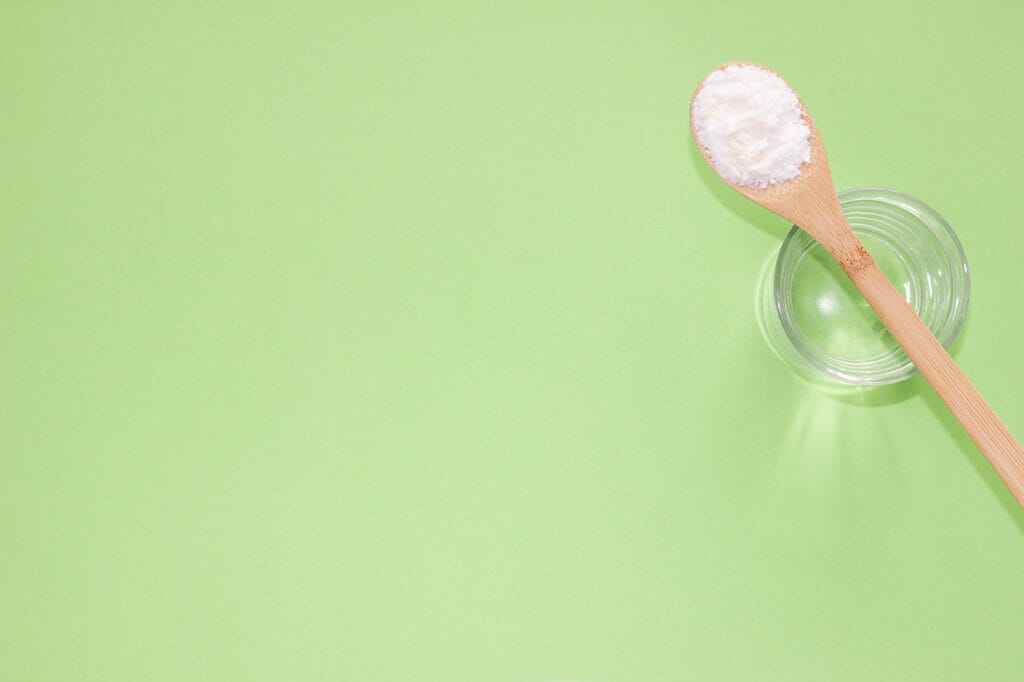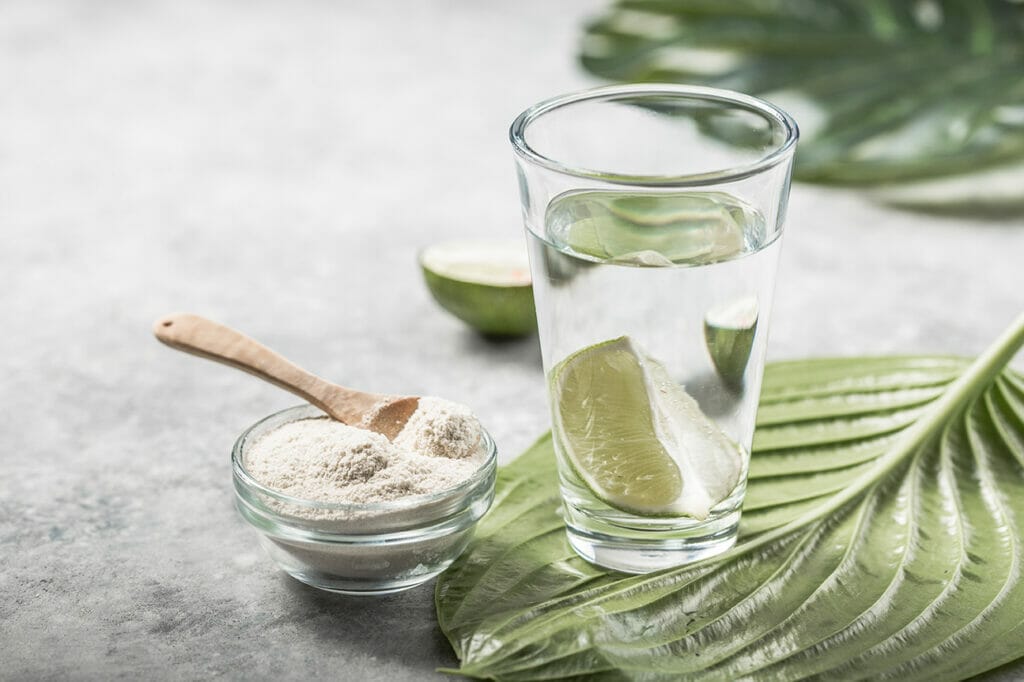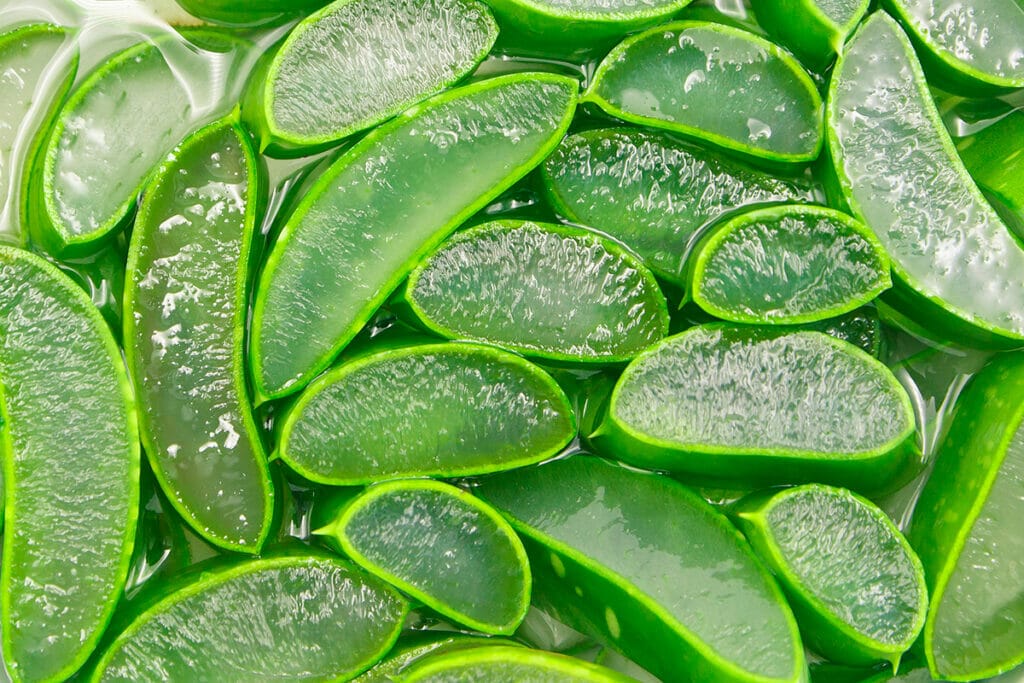Aloe Vera and Collagen
Over the past few years, collagen supplements have become the rising star, the new king on the throne so to speak as celebrities and health practitioners extol its beauty credentials and health benefits. So, what is collagen, and does it deserve the attention it is getting?

Collagen basics
Collagen is the most abundant protein in the human body. Made up of amino acids, this fibrous extracellular protein is the structural support for skin, joints, tendons, and other connective tissue structures. It offers the perfect scaffolding for the connective tissue due to its rigidity and resistance to stretching.[i]
Collagen can be divided into several groups which depend on the type of structures they form, there are 28 various types of collagens, but the most common types are type I-V, with type I comprising over 90% of the collagen in the human body.
- Type I builds skin, bones, tendons, and ligaments[ii].
- Type II helps to make cartilage.
- Type III helps create muscles and blood vessels.
- Type IV is the main component of the basement membranes.
- Type V is a form of fibrillar collagen.[iii]
The name collagen comes from the Greek word kólla which means glue[iv] it plays a major role in holding our cells together! We produce our own collagen naturally from the foods we eat. Three amino acids (the building blocks of protein) that are important for its synthesis are glycine, proline and lysine [v], therefore eating foods rich in these amino acids such as poultry, eggs, sardines, tofu, spirulina, mushrooms, asparagus, sea vegetables, quinoa, kiwi etc are important.

Nutrients that produce Collagen
Vitamin C is also essential for the production of collagen so, eating foods rich in this vitamin (fruits & vegetables) on a daily basis, will also help support collagen production.
As we age our collagen production naturally diminishes, this process will speed up with an unhealthy diet and lifestyle such as drinking alcohol, smoking, excess sun exposure and excess sugar intake. Also, high-stress levels, poor sleep, lack of exercise and menopause will affect our collagen production. Improving our diet and lifestyle will all help, and so too will taking collagen-boosting supplements.
Our skin is the most obvious outward sign of ageing, from fine to deeper lines, crows feet around the eyes, wrinkles, dry skin, age spots and more, and it’s for these reasons that the global collagen supplement market was valued at $2 billion in 2021 and growing.

Aloe Vera
One natural plant that has not been highlighted yet, and has been used for centuries for its beauty-enhancing, healing and medicinal properties, is Aloe Vera. The Egyptians even described it as the “plant of immortality”!
Aloe Vera’s anti-inflammatory, anti-bacterial, anti-fungal, anti-viral, immune-supporting and skin healing properties have been very well documented but what may have been overlooked is its use for the reduction of wrinkles and other tell-tale signs of skin ageing.
Studies have shown that ingesting Aloe Vera does in fact boost our Collagen type I, which in turn, improves the appearance of wrinkles and skin elasticity[vi], particularly in women aged 40 years and over. Aloe Sterols found in the Aloe plant have been shown to stimulate collagen and hyaluronic acid production in the dermal fibroblasts which are the main cell type present in the skin’s connective tissue. [vii]
Aloe Vera juice has long been dubbed the fountain of youth, with the encouraging research on its effect on collagen Type I and wrinkle reduction skin plumping abilities, we can see why it is worthy of this title.
References
[i] https://www.ncbi.nlm.nih.gov/books/NBK507709/
[ii] https://www.webmd.com/skin-problems-and-treatments/ss/slideshow-collagen-and-your-body
[iii] https://en.wikipedia.org/wiki/Type_V_collagen
[iv] https://en.wikipedia.org/wiki/Collagen
[v] de Paz-Lugo P, Lupiáñez JA, Meléndez-Hevia E. High glycine concentration increases collagen synthesis by articular chondrocytes in vitro: acute glycine deficiency could be an important cause of osteoarthritis. Amino Acids. 2018 Oct;50(10):1357-1365. doi: 10.1007/s00726-018-2611-x. Epub 2018 Jul 13. PMID: 30006659; PMCID: PMC6153947.
[vi] Cho S, Lee S, Lee MJ, Lee DH, Won CH, Kim SM, Chung JH. Dietary Aloe Vera Supplementation Improves Facial Wrinkles and Elasticity and It Increases the Type I Procollagen Gene Expression in Human Skin in vivo. Ann Dermatol. 2009 Feb;21(1):6-11. doi: 10.5021/ad.2009.21.1.6. Epub 2009 Feb 28. PMID: 20548848; PMCID: PMC2883372.
[vii] Kisiel MA, Klar AS. Isolation and Culture of Human Dermal Fibroblasts. Methods Mol Biol. 2019;1993:71-78. doi: 10.1007/978-1-4939-9473-1_6. PMID: 31148079.



